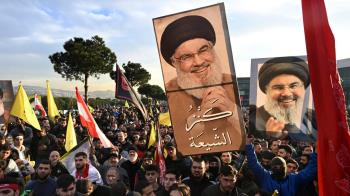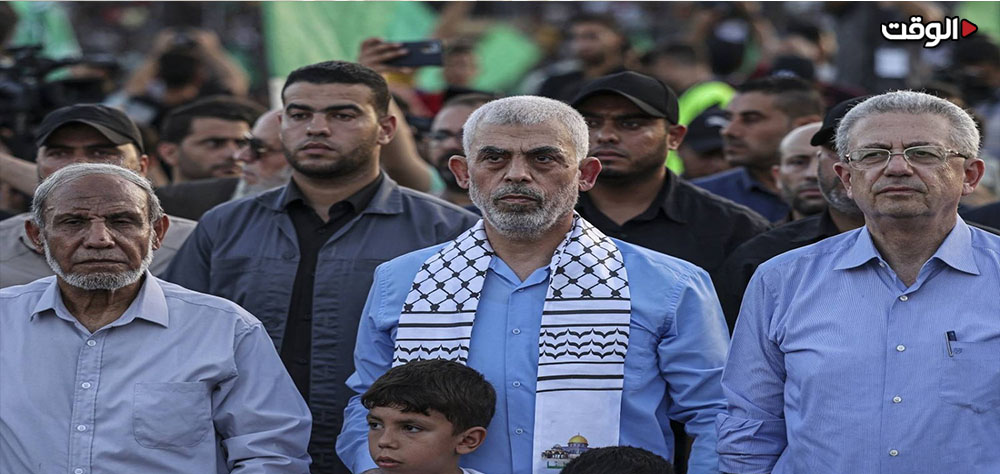Alwaght- When Abu Ibrahim was born in a refugee camp in 1962 in Khan Younis, several years had gone since his family was displaced after foundation of the Israeli regime in 1948. His real name was Yahya Sinwar and decades later, he became the hero of Palestine. The Israeli regime martyred Sinwar a few days ago after a year of unequal war and after hundreds of tons of bomb dropped on Gaza. During his youth, Sinwar was imprisoned for 23 years by Israel for his pro-liberation struggle, and Israeli sources considered him the mastermind of the October 7, 2023 operation known as the Operation Al-Aqsa Storm— an operation that destroyed Israel's intelligence and security hegemony in less than a few hours and drew the world attention to the Palestinian cause and the need to liberate Palestine from the Israeli occupation.
Sinwar was named leader of Hamas after Israel assassinated Ismail Haniyeh in Tehran later in July. Now many wonder where Hamas heads after Sinwar.
Retreat?
The first reactions to the martyrdom of Yahya Sinwar by the Western leaders was raising the idea that a ceasefire in Gaza would now be achievable. In this connection, the US President Joe Biden claimed that the prospect of a ceasefire is closer than ever, and the Jerusalem Post, citing some Israeli circles, spoke about the need to achieve a ceasefire after Sinwar. Meanwhile, the Hamas resistance group under by Sinwar has repeatedly voiced ite openness to a ceasefire, saying that the signing of the agreement is conditional on the complete withdrawal of the Israeli occupation from Gaza. After Sinwar's martyrdom, Hamas leaders announced in a statement that the movement will not back down from its conditions and they continue to insist on the complete withdrawal of the Israeli forces from Gaza before any ceasefire agreement. Therefore, any Hamas withdrawal of its positions after the martyrdom of Sinwar is unthinkable, but Hamas still insists on the complete withdrawal of the occupiers from Gaza as a precondition for a ceasefire. Therefore, it does not seem that there will be any change in the positions of Hamas after Sinwar, especially that his most likely replacements, his brother Mohammad Sinwar in Gaza and Khalil al-Haya, still insist on resisting the occupation.
Who was obstacle to ceasefire? Sinwar or Netanyahu?
So far, the biggest obstacle to the Gaza ceasefire has been the Israeli regime. Actually, it is Netanyahu who has so far rejected cessation of hostilities. This runs counter to the Western and Israeli narrative who through a propaganda campaign have tried to paint Sinwar the man blocking truce. In this connection, on Friday and a few days after the martyrdom of Sanwar, informed sources dismissed Israeli claims against Sinwar. The Washington Post newspaper, quoting informed diplomats, wrote that it is Netanyahu who prevents any ceasefire agreement in Gaza, not Sinwar.
Diplomats involved in ceasefire talks told this newspaper that the Israeli PM has repeatedly blocked a ceasefire agreement since June by making new demands. The Washington Post continued this report, quoting the mentioned sources, that ceasefire negotiations have been stalled in recent weeks. "Before Netanyahu made new demands, Hamas supported Biden's proposed deal," according to the sources.
Hamas stands firm
Tel Aviv cites undermining and eliminating resistance groups as the main reasons for assassination of their leaders and commanders, including Sinwar. But has the elimination of resistance leaders led to their destruction? Sinwar is not the first resistance leader being assassinated by Israelis. Before him, Hezbollah Secretary-General Sayyed Hassan Nasrallah was assassinated in a heavy bombing in Beirut. However, Hezbollah continues to rock deep into the occupied territories. Like Hezbollah, Hamas lost its leaders, including Sheikh Ahmad Yassin, Abdulaziz Rantisi, and Ismail Haniyeh in Israeli terrorist actions, but it has not quitted its main aim of liberation of Palestine. An American academic told Aljazeera that Hamas is a thought and an idea and thought does not disappear with elimination of persons, rather, its moves forward from one to another generation.



























